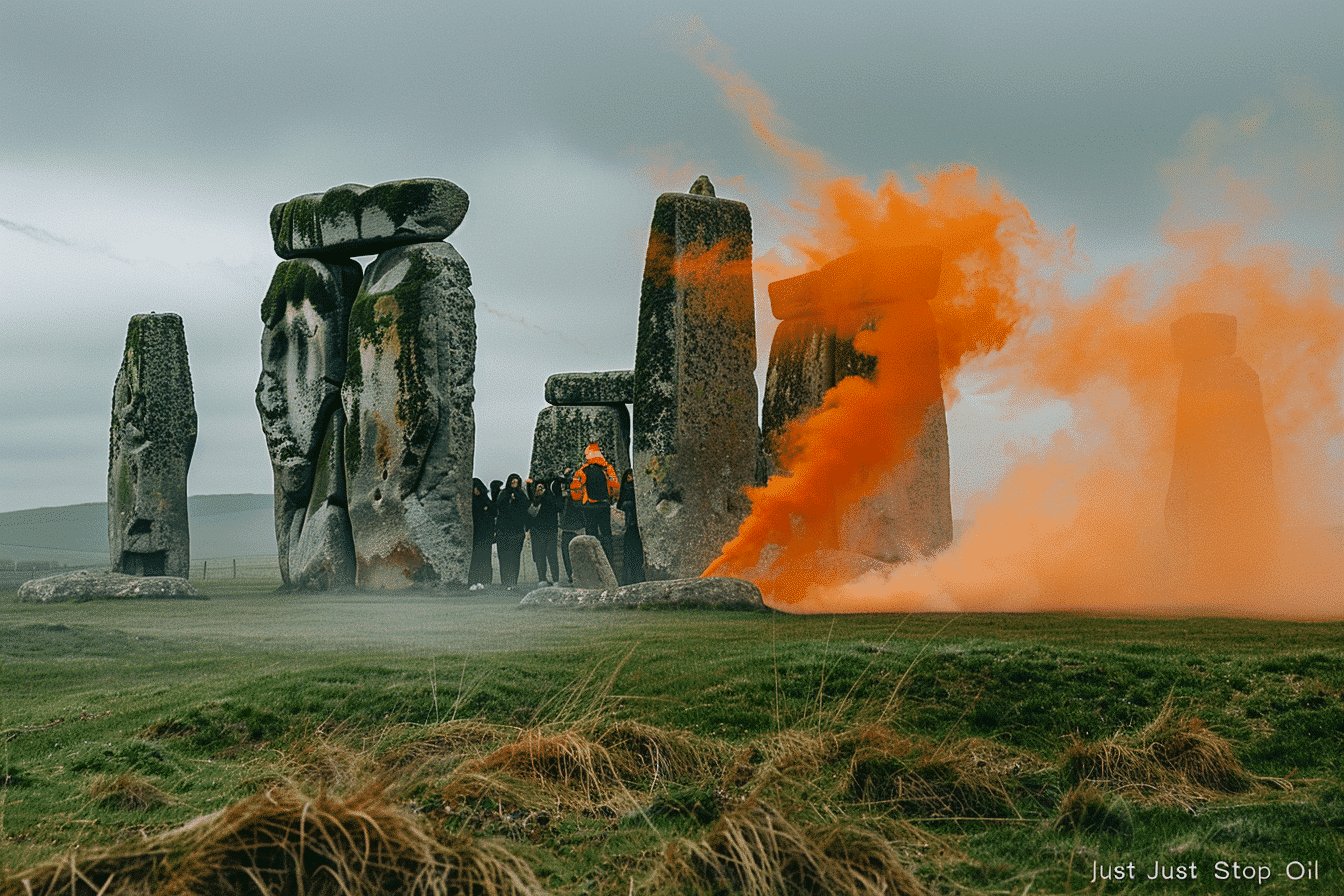In a bold and controversial move, two climate protesters were arrested for spraying orange paint on the ancient Stonehenge monument in southern England. The incident, which occurred just before the summer solstice celebrations, has sparked widespread condemnation and debate about the methods used by climate activists.
The Incident: Stonehenge Targeted
On Wednesday, video footage captured two individuals rushing towards the 4,500-year-old stone circle at Stonehenge and spraying it with bright orange pigment. A third person attempted to intervene but was unsuccessful. According to Just Stop Oil’s website, the pigment, made from “orange cornflour,” is designed to wash away in the rain. Despite this, the vandalism left several stones smeared in orange, leading to significant public outrage.
Official Reactions: Condemnation and Concern
Prime Minister Rishi Sunak swiftly condemned the act, calling it a “disgraceful act of vandalism.” English Heritage, the organization responsible for managing Stonehenge, expressed their dismay, stating that the damage was “extremely upsetting.” Curators are investigating the full extent of the damage to the UNESCO World Heritage Site, which holds immense historical and cultural significance.
Arrests and Legal Actions
Wiltshire Police reported that the two individuals responsible for the incident were arrested on suspicion of damaging one of the world’s most renowned prehistoric monuments. The suspects were identified as Niamh Lynch, a 21-year-old student from Oxford, and Rajan Naidu, a 73-year-old activist from Birmingham.
Just Stop Oil: Motivations and Methods
Just Stop Oil, the group behind the protest, has become notorious for its disruptive tactics aimed at drawing attention to climate change. The group stated that the action was in response to the Labour Party’s recent election manifesto, which promises to halt new oil and gas exploration licenses if elected. However, Just Stop Oil argues that this measure is insufficient and demands a treaty to phase out fossil fuels by 2030. “Continuing to burn coal, oil, and gas will result in the death of millions,” the group declared in a statement.
Historical Significance of Stonehenge
Stonehenge, located on the Salisbury Plain, is a great archaeological and cultural site. Built in stages starting 5,000 years ago, the stone circle was erected during the late Neolithic period around 2,500 B.C. The origins of some stones, known as bluestones, trace back to southwest Wales, nearly 150 miles away, while the origins of others remain a mystery. The monument attracts thousands of visitors annually, especially during the summer solstice.
The recent act of vandalism at Stonehenge has highlighted the ongoing tensions between climate activists and the public. While the urgency of addressing climate change is widely acknowledged, the methods employed by groups like Just Stop Oil remain highly controversial. As investigations continue, the incident serves as a reminder of the delicate balance between activism and preserving our shared heritage.




